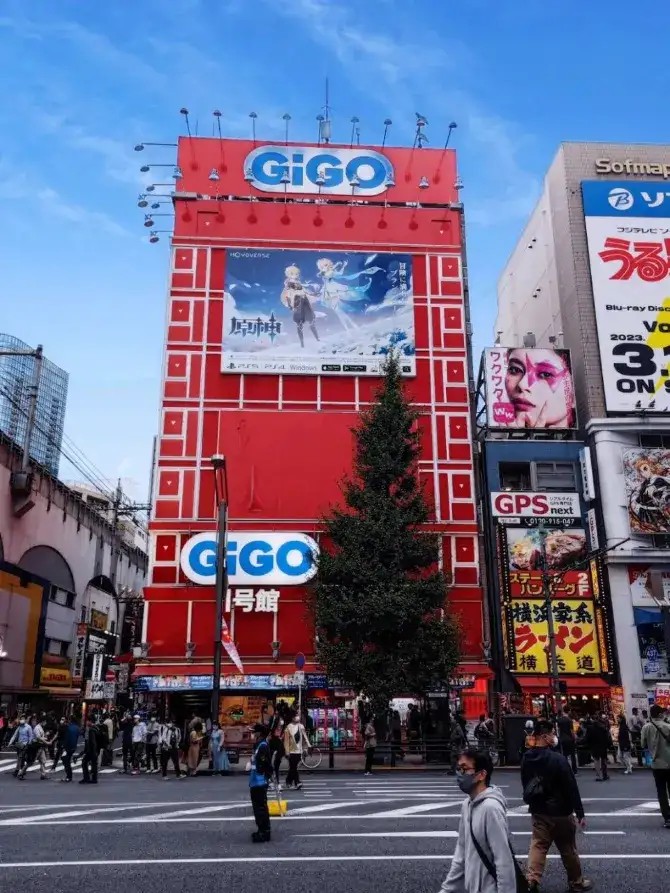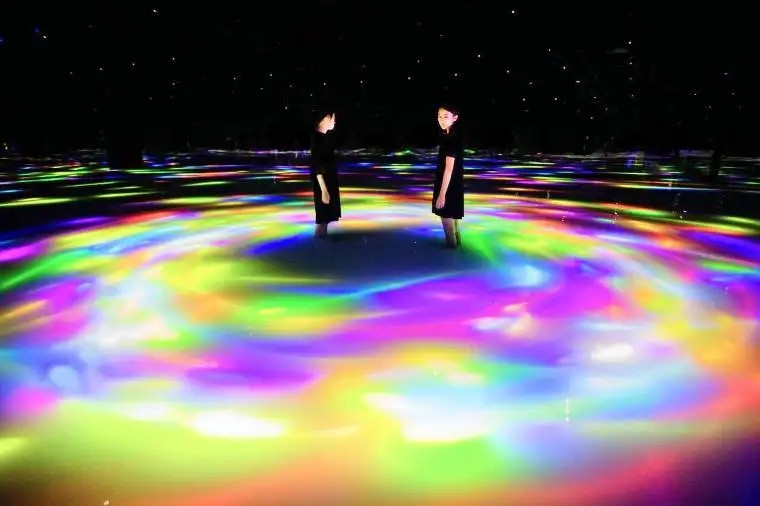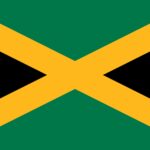Planning a trip to Japan is an exciting endeavor, and at TRAVELS.EDU.VN, we’re here to help you navigate the financial aspects of your journey. Discover the cost of exploring the Land of the Rising Sun, from flights and accommodation to food and activities, and learn how to tailor your budget for an unforgettable experience. Understanding the expenses involved in a trip to Japan is crucial for effective travel planning. This article explores various cost factors and provides valuable tips for saving money, ensuring you can enjoy Japan without breaking the bank.
1. Understanding the Key Cost Factors for a Trip to Japan
The cost of a trip to Japan can vary significantly based on several factors. Understanding these elements is the first step in creating a realistic budget for your adventure. Let’s break down the primary cost drivers:
-
Flights: Airfare is often the most significant expense. Prices vary depending on the season, airline, and how far in advance you book.
-
Accommodation: Japan offers a wide range of lodging options, from budget-friendly hostels and guesthouses to mid-range hotels and luxurious ryokans (traditional Japanese inns).
-
Transportation: Japan boasts an efficient and extensive public transportation system. The Japan Rail Pass can be a cost-effective option for travelers planning to cover large distances.
-
Food: From affordable ramen shops to high-end sushi restaurants, Japan offers diverse culinary experiences. Your food budget will depend on your dining preferences.
-
Activities & Sightseeing: Entrance fees to temples, museums, theme parks, and other attractions can add up. Consider purchasing city passes for discounts.
-
Miscellaneous Expenses: Don’t forget to factor in costs like travel insurance, pocket Wi-Fi rental, souvenirs, and unexpected expenses.
2. Estimating Flight Costs to Japan
The cost of flights to Japan can fluctuate considerably based on several variables. Being aware of these factors can help you secure the best possible deal:
-
Origin City: Flights from major US cities like Los Angeles, San Francisco, and New York are generally more frequent and may offer competitive prices.
-
Time of Year: Peak seasons like cherry blossom (late March to early April) and autumn foliage (October to November) tend to have higher airfares. Traveling during the shoulder seasons (April-May and September-October) can offer better deals.
-
Airline: Full-service airlines often offer more amenities but may be pricier. Budget airlines can provide significant savings, but be mindful of extra fees for baggage and seat selection.
-
Booking Time: Booking flights well in advance (3-6 months) can often lead to lower prices. However, last-minute deals can sometimes be found, though they are less reliable.
Here’s a table illustrating estimated round-trip flight costs to Japan from various US cities:
| City of Origin | Low Season (USD) | Shoulder Season (USD) | High Season (USD) |
|---|---|---|---|
| Los Angeles | $800 – $1,000 | $1,000 – $1,300 | $1,300 – $1,600 |
| San Francisco | $850 – $1,050 | $1,050 – $1,350 | $1,350 – $1,650 |
| New York | $900 – $1,200 | $1,200 – $1,500 | $1,500 – $1,800 |
| Houston | $950 – $1,250 | $1,250 – $1,550 | $1,550 – $1,850 |
| Chicago | $900 – $1,200 | $1,200 – $1,500 | $1,500 – $1,800 |
3. Accommodation Costs in Japan: From Hostels to Ryokans
Japan offers a diverse range of accommodation options to suit every budget and preference. Here’s a breakdown of typical costs:
- Hostels: A budget-friendly option, especially for solo travelers. Expect to pay $25 – $45 per night for a dorm bed.
- Budget Hotels: Simple and clean hotels offering basic amenities. Prices range from $50 – $100 per night.
- Mid-Range Hotels: Comfortable hotels with good facilities and convenient locations. Expect to pay $100 – $200 per night.
- Ryokans (Traditional Japanese Inns): A unique cultural experience with tatami mats, futon beds, and onsen (hot springs). Prices range from $150 – $500+ per night, often including meals.
- Capsule Hotels: A unique and space-saving option, primarily in urban areas. Expect to pay $30 – $60 per night.
Tips for Saving on Accommodation:
- Travel During the Off-Season: Accommodation prices tend to be lower outside of peak seasons.
- Book in Advance: Secure better rates and availability by booking your accommodation well in advance, especially during popular travel periods.
- Consider Alternative Locations: Staying slightly outside the city center can often result in lower prices.
- Look for Deals and Discounts: Check online travel agencies and hotel websites for promotions and special offers.
4. Navigating Transportation Costs in Japan
Japan’s transportation system is renowned for its efficiency and punctuality. Here’s a breakdown of the various options and associated costs:
- Japan Rail Pass: A cost-effective option for tourists planning extensive travel across Japan. It allows unlimited travel on most JR trains, including bullet trains (Shinkansen). Prices vary depending on the duration of the pass (7, 14, or 21 days).
| Pass Duration | Price (USD) |
|---|---|
| 7 Days | $250 – $350 |
| 14 Days | $400 – $550 |
| 21 Days | $550 – $750 |
- Individual Train Tickets: For shorter distances or travel outside the JR network, individual train tickets can be purchased. Fares vary based on distance.
- Subway & Local Trains: In major cities like Tokyo and Osaka, subways and local trains are the most convenient way to get around. A single ride typically costs $1.50 – $3.
- Buses: Buses are a cost-effective option for traveling between cities and regions, especially those not well-served by trains.
- Taxis: Taxis are readily available in urban areas but can be expensive.
- Rental Cars: Renting a car can be a good option for exploring rural areas, but driving in major cities can be challenging.
Tips for Saving on Transportation:
- Purchase a Japan Rail Pass: If you plan to travel extensively by train, the Japan Rail Pass can save you a significant amount of money.
- Use Prepaid Transportation Cards: Suica and Pasmo cards can be used on most public transportation systems in major cities, offering convenience and potential discounts.
- Walk or Bike: Explore cities on foot or by renting a bicycle to save on transportation costs and experience the local atmosphere.
 Efficient Transportation Japan
Efficient Transportation Japan
alt: Vibrant Akihabara district in Tokyo, showcasing efficient transportation in Japan.
5. Food Costs in Japan: From Ramen to Fine Dining
Japanese cuisine is a delight for food lovers, offering a vast array of options to suit every palate and budget. Here’s a look at typical food costs:
- Budget-Friendly Meals: Ramen, udon, soba, and donburi (rice bowl dishes) can be found for $5 – $10 per meal.
- Convenience Store Meals: Convenience stores (like 7-Eleven and Lawson) offer a variety of affordable and tasty meals, such as onigiri (rice balls), bento boxes, and sandwiches, for $3 – $7.
- Mid-Range Restaurants: Expect to pay $15 – $30 per person for a meal at a mid-range restaurant, such as sushi restaurants or izakayas (Japanese pubs).
- High-End Dining: Fine dining experiences, such as kaiseki (multi-course Japanese haute cuisine), can cost upwards of $50 – $100+ per person.
Tips for Saving on Food:
- Eat Like a Local: Explore local eateries and street food stalls for affordable and authentic Japanese cuisine.
- Take Advantage of Lunch Sets: Many restaurants offer discounted lunch sets (teishoku), which include a main dish, rice, miso soup, and side dishes.
- Cook Your Own Meals: If your accommodation has a kitchen, consider cooking some of your own meals to save money.
- Visit Supermarkets: Supermarkets offer a variety of affordable food options, including pre-made meals, snacks, and drinks.
6. Activities and Sightseeing Expenses
Japan offers a wealth of cultural and historical attractions, as well as modern entertainment options. Here’s a look at typical costs for activities and sightseeing:
- Temples and Shrines: Many temples and shrines offer free admission, while others charge a small entrance fee (typically $3 – $5).
- Museums: Entrance fees to museums typically range from $5 – $15.
- Theme Parks: Theme parks like Tokyo Disneyland and Universal Studios Japan can be expensive, with tickets costing upwards of $70 – $90 per person.
- Gardens: Entrance fees to Japanese gardens typically range from $5 – $10.
- City Passes: Many cities offer tourist passes that provide discounted admission to multiple attractions and unlimited use of public transportation.
Tips for Saving on Activities:
- Take Advantage of Free Attractions: Explore parks, gardens, and temples that offer free admission.
- Purchase City Passes: If you plan to visit multiple attractions, a city pass can save you money.
- Look for Discounts and Coupons: Check online travel agencies and tourist information centers for discounts and coupons on attractions and activities.
7. Sample Trip Budgets for Different Travel Styles
To provide a clearer picture of the potential costs of a trip to Japan, here are sample budgets for different travel styles:
Budget Traveler (Per Day):
- Accommodation (Hostel): $35
- Food: $25
- Transportation: $15
- Activities: $10
- Total: $85
Mid-Range Traveler (Per Day):
- Accommodation (Hotel): $120
- Food: $50
- Transportation: $25
- Activities: $25
- Total: $220
Luxury Traveler (Per Day):
- Accommodation (Ryokan/Luxury Hotel): $400
- Food: $150
- Transportation: $50
- Activities: $100
- Total: $700
These are just estimates, and your actual costs may vary depending on your individual preferences and spending habits.
8. Essential Travel Insurance for Japan
Travel insurance is an essential part of any trip, providing coverage for unexpected events such as medical emergencies, trip cancellations, and lost luggage. The cost of travel insurance for Japan can vary depending on factors such as your age, the length of your trip, and the level of coverage you need.
- Basic Travel Insurance: Covers medical emergencies and trip cancellations. Expect to pay $50 – $100 for a 1-2 week trip.
- Comprehensive Travel Insurance: Includes medical coverage, trip cancellation/interruption coverage, and coverage for lost or stolen belongings. Expect to pay $100 – $200+ for a 1-2 week trip.
Tips for Choosing Travel Insurance:
- Compare Policies: Shop around and compare travel insurance policies from different providers to find the coverage that best meets your needs and budget.
- Read the Fine Print: Be sure to read the policy details carefully and understand what is and isn’t covered, as well as any deductibles or exclusions.
- Consider Your Needs: Assess your individual needs and choose a policy that provides adequate coverage for potential risks, such as medical emergencies, trip cancellations, and lost belongings.
9. How to Save Money on Your Trip to Japan: Practical Tips
Traveling to Japan doesn’t have to break the bank. Here are some practical tips for saving money:
- Travel During the Shoulder Season: Flights and accommodation are generally cheaper during the shoulder seasons (April-May and September-October).
- Stay in Budget Accommodation: Hostels, guesthouses, and budget hotels offer affordable accommodation options.
- Purchase a Japan Rail Pass: If you plan to travel extensively by train, the Japan Rail Pass can save you a significant amount of money.
- Eat Like a Local: Explore local eateries and convenience stores for affordable and tasty meals.
- Take Advantage of Free Activities: Explore parks, gardens, and temples that offer free admission.
- Purchase City Passes: If you plan to visit multiple attractions, a city pass can save you money.
- Use Public Transportation: Japan has an efficient and affordable public transportation system.
- Carry Cash: Some smaller businesses may only accept cash.
- Rent a Pocket Wi-Fi Device: Avoid expensive roaming charges by renting a pocket Wi-Fi device.
 Beautiful Temple Japan
Beautiful Temple Japan
alt: Serene Japanese temple, emphasizing cultural richness and budget-friendly sightseeing opportunities.
10. Budgeting for Souvenirs and Shopping
Shopping for souvenirs is an integral part of the travel experience. Here’s how to budget for souvenirs in Japan:
- Set a Budget: Determine how much you’re willing to spend on souvenirs before you start shopping.
- Explore Local Markets: Local markets offer a variety of unique and affordable souvenirs.
- Look for Tax-Free Shopping: Many stores offer tax-free shopping for tourists.
- Consider Practical Souvenirs: Opt for practical souvenirs that you can use or enjoy long after your trip is over, such as traditional crafts, snacks, or teas.
11. The Cost of a Passport and Visa for Japan
Ensure you have the necessary travel documents before embarking on your journey to Japan. Here’s what you need to know about passport and visa costs:
- Passport: A valid passport is required for all travelers entering Japan. The cost of a new passport in the United States is $145 for adults and $115 for children under 16.
- Visa: Citizens of many countries, including the US, Canada, UK, and most European countries, can enter Japan for tourism without a visa for up to 90 days. Check with the Japanese embassy or consulate in your country for the most up-to-date information.
12. How TRAVELS.EDU.VN Can Help You Plan Your Trip to Japan
Planning a trip to Japan can be overwhelming, but TRAVELS.EDU.VN is here to help. We offer a range of services to make your trip planning process easier and more enjoyable:
- Customized Itineraries: We can create personalized itineraries tailored to your interests, budget, and travel style.
- Accommodation Booking: We can help you find and book the perfect accommodation for your needs, from budget-friendly hostels to luxurious ryokans.
- Transportation Assistance: We can assist you with purchasing Japan Rail Passes, booking individual train tickets, and arranging airport transfers.
- Activity Recommendations: We can provide recommendations for the best activities and attractions in Japan, based on your interests and budget.
- Expert Advice: Our team of travel experts can provide valuable advice and tips to help you plan a memorable and stress-free trip to Japan.
Ready to start planning your dream trip to Japan? Contact us at TRAVELS.EDU.VN today! Our office is located at 123 Main St, Napa, CA 94559, United States. You can reach us via Whatsapp at +1 (707) 257-5400 or visit our website at TRAVELS.EDU.VN.
13. Essential Japanese Phrases for Travelers
Learning a few basic Japanese phrases can enhance your travel experience and make it easier to communicate with locals. Here are some essential phrases:
- Hello: Konnichiwa (こんにちは)
- Thank You: Arigato (ありがとう)
- Excuse Me: Sumimasen (すみません)
- Yes: Hai (はい)
- No: Iie (いいえ)
- How Much?: Ikura desu ka? (いくらですか?)
- Where is the restroom?: Toire wa doko desu ka? (トイレはどこですか?)
- Do you speak English?: Eigo ga wakarimasu ka? (英語が分かりますか?)
14. Understanding Japanese Customs and Etiquette
Respecting local customs and etiquette is an important part of traveling in Japan. Here are some key points to keep in mind:
- Remove Your Shoes: It’s customary to remove your shoes when entering someone’s home, a traditional ryokan, or certain temples and restaurants.
- Bowing: Bowing is a common greeting and a sign of respect in Japan.
- Using Chopsticks: Avoid sticking your chopsticks upright in a bowl of rice, as this is associated with funerals.
- Tipping: Tipping is not customary in Japan.
- Being Punctual: Punctuality is highly valued in Japan.
15. FAQ: Frequently Asked Questions About the Cost of Traveling to Japan
-
What is the best time to visit Japan on a budget?
The shoulder seasons (April-May and September-October) offer a balance of pleasant weather and lower prices.
-
How much cash should I bring to Japan?
It depends on your spending habits. It’s a good idea to have enough cash for smaller businesses and rural areas.
-
Is it safe to drink tap water in Japan?
Yes, tap water in Japan is generally safe to drink.
-
What is the voltage in Japan?
The voltage in Japan is 100V, and the frequency is 50/60 Hz. You may need a plug adapter and a voltage converter.
-
Are credit cards widely accepted in Japan?
Credit cards are widely accepted in major cities, but smaller businesses and rural areas may only accept cash.
-
What are some must-try foods in Japan?
Ramen, sushi, tempura, okonomiyaki, and takoyaki are just a few of the many delicious foods to try in Japan.
-
How can I get around Japan efficiently?
Japan has an excellent public transportation system, including trains, subways, and buses. Consider purchasing a Japan Rail Pass if you plan to travel extensively.
-
What are some popular souvenirs to buy in Japan?
Traditional crafts, ceramics, teas, snacks, and anime merchandise are popular souvenir options.
-
How much does it cost to rent a pocket Wi-Fi device in Japan?
Pocket Wi-Fi rental typically costs $5 – $10 per day.
-
Do I need to speak Japanese to travel in Japan?
While it’s helpful to learn a few basic Japanese phrases, many people in tourist areas speak English.
Japan offers a unique blend of ancient traditions and modern innovations, making it a fascinating destination for travelers of all kinds. By carefully planning your budget and taking advantage of money-saving tips, you can experience the best of Japan without breaking the bank. Let TRAVELS.EDU.VN help you create an unforgettable journey!
Ready to explore the wonders of Japan? Don’t let budget constraints hold you back! Contact TRAVELS.EDU.VN today for expert guidance and personalized travel planning. Our team is dedicated to crafting the perfect itinerary that aligns with your interests and budget. Call us now via Whatsapp at +1 (707) 257-5400 or visit our website at TRAVELS.EDU.VN to start your adventure! Our office is located at 123 Main St, Napa, CA 94559, United States. Let travels.edu.vn turn your dream of traveling to Japan into a reality!

